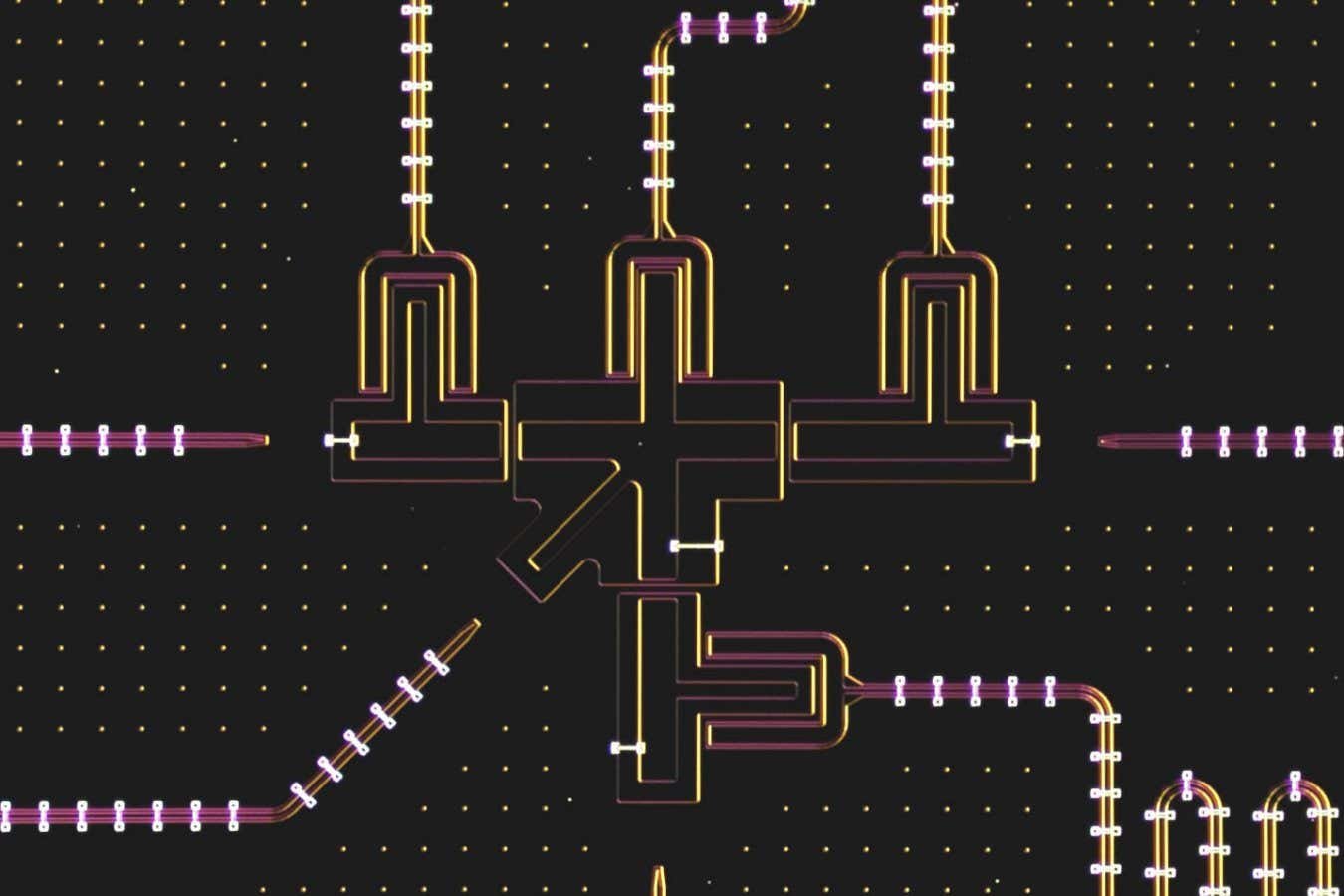A fake color image of Quantum Router Circuit
My Squill Foundry
Quantum computers may be able to run useful algorithms faster thanks to the New Quantum Router that helps data get to the right place quickly.
Traditional computers avoid slowing down when they are partly facing a complicated program by using Random Access Memory (RAM) to temporarily store some information. The component key to build Ram’s quantum counterpart, Qram, is a router. This is not the router that directs your Internet requests to the correct IP address, but rather an internal router that directly information traffic inside a computer.
Connie Miao at Stanford University in California and her Colleugues has now built such a unit. “The project was motivated by algorithms using QRAM. There were a lot of papers that basically came out and said, ‘If we had a Qram, we could do Xyz,’ but this wasn’t shown [experimentally]”She says.
The new router consists of Qubits, the basic building blocks for all quantum computers and quantum memories, made of small superconducting circuits and controlled by electromagnetic impulses. Like a traditional router, this quantum man feels quantum information to quantum addresses. What separates the unit as being fully quantum is that it allows the address to be coded not only in one place in an overlay of two. The team tests this with three quubits and found that the routing had about 95 percent faith.
This means that if it was incorporated into a QRAM, the device could push information into a quantum state where it is impossible to say that the two places it is stored in – exactly the kind of phenomenon assumed to make quantum computers powerful.
Luming Duan at Tsinghua University in China, whose team previously built a Quantum Router, which Ongly worked during some races, says the new unit is an important step towards building practical QRAMs that can enable the driving of quantum learning algorithms.
Team Member David Schuster at Stanford University says there are still many open questions about how accurate quantum-dirting could make a practical difference, but the possibilities are wide, from well-known algorithms to searching databases to creating IP addresses for future iterations of the Internet.
Nevertheless, the current version of the router is still not reliable enough for some of these uses, so it needs to be made to get errors and contain a larger number of Qubits in the future, says Sébastien Léger at Stanford University, who worked on the project.
Journal Reference: PRX quantumin the press
Topics:
